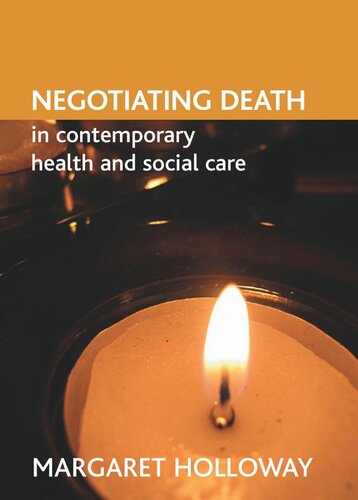

Most ebook files are in PDF format, so you can easily read them using various software such as Foxit Reader or directly on the Google Chrome browser.
Some ebook files are released by publishers in other formats such as .awz, .mobi, .epub, .fb2, etc. You may need to install specific software to read these formats on mobile/PC, such as Calibre.
Please read the tutorial at this link: https://ebookbell.com/faq
We offer FREE conversion to the popular formats you request; however, this may take some time. Therefore, right after payment, please email us, and we will try to provide the service as quickly as possible.
For some exceptional file formats or broken links (if any), please refrain from opening any disputes. Instead, email us first, and we will try to assist within a maximum of 6 hours.
EbookBell Team

5.0
20 reviewsOnce regarded as taboo, it is now claimed that we are a death-obsessed society. The face of death in the 21st century, brought about by cultural and demographic change and advances in medical technology, presents health and social care practitioners with new challenges and dilemmas. By focusing on predominant patterns of dying; global images of death; shifting boundaries between the public and the private; and cultural pluralism, the author looks at the way death is handled in contemporary society and the sensitive ethical and practical dilemmas facing nurses, social workers, doctors and chaplains. This book brings together perspectives from social science, health-care and pastoral theology to assist the reader in understanding and negotiating this 'new death'. End-of-life care and old age, changing funeral and burial practices, new stigmas such as drug-related bereavements, are highlighted, and theories of dying and bereavement re-examined in their context. The concluding chapters incorporate recent case studies into an exploration of the meanings and shape of holistic and integrated care. Students interested in death studies from a sociological and cultural viewpoint as well as health and social care practitioners, will benefit from its critical appraisal and application of the established knowledge base to contemporary practices and ethical debates.